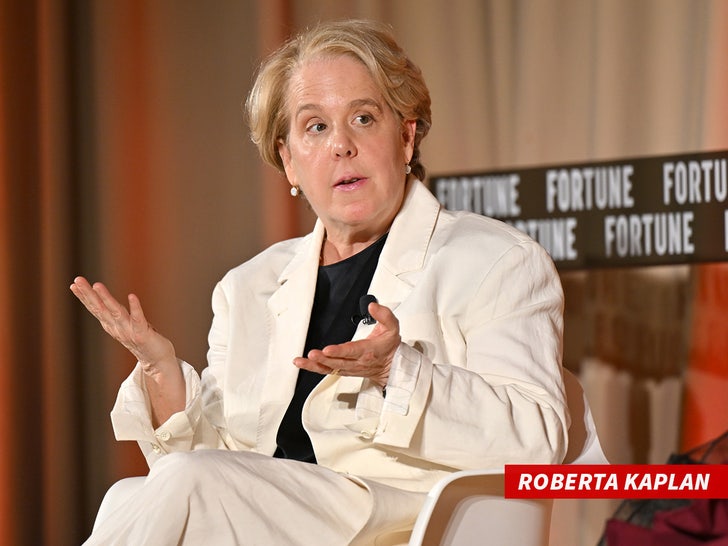SHOCKING UPDATE ON WENDY WILLIAMS’ HEALTH In a bombshell that’s left fans reeling, a shocking new revelation has emerged about the health status of beloved TV personality Wendy Williams. Just a few days ago, Wendy stunned the world with an interview that had many thinking she was back on her feet, ready to return to the spotlight. However, according to sources close to the star, her team of medical professionals and a high-powered guardianship attorney are painting a very different picture. Despite Wendy’s recent interview, insiders claim that she is still very much suffering from the debilitating effects of dementia. The alarming news raises serious questions about the true state of Wendy’s health and the extent to which her loved ones are involved in her care. In this exclusive article, we’ll dive deeper into the shocking details and explore the implications of this stunning update on Wendy Williams’ health drama.
The Wendy Williams Guardianship Saga: Unpacking the Reality Behind the Headlines

Wendy Williams, the renowned television host and media personality, has been at the center of a highly publicized guardianship saga. The ongoing controversy has sparked intense debate and raised important questions about her health, mental capacity, and living situation.
In a recent statement, Roberta Kaplan, Wendy’s guardianship attorney, clarified that the media personality is still suffering from frontal lobe dementia, a degenerative neurological disease with no cure.
Frontal Lobe Dementia: A Devastating Diagnosis
Frontal lobe dementia is a condition characterized by the progressive degeneration of the front part of the brain, leading to significant cognitive and behavioral changes. The disease affects memory, language, problem-solving, and emotional regulation, making everyday tasks increasingly challenging.
According to the National Institute on Aging, frontal lobe dementia accounts for approximately 5-10% of all dementia cases, with symptoms typically appearing between the ages of 50 and 90.
Wendy’s diagnosis highlights the complexities of living with a degenerative condition. As the disease progresses, she may experience increased memory loss, difficulty with communication, and emotional instability.
Guardianship and Conservatorship: A Protective Measure
The New York State court’s decision to appoint a guardian and conservator for Wendy underscores the need for protective measures in cases where individuals are no longer capable of making informed decisions about their own lives.
As Wendy’s guardianship attorney, Roberta Kaplan plays a crucial role in ensuring her client’s well-being and advocating for her rights. Kaplan’s statement emphasizes that Wendy’s situation requires ongoing care and support, given the degenerative nature of her condition.
Sabrina Morrissey, appointed as Wendy’s conservator, is responsible for managing her financial and personal affairs. This role involves making decisions on Wendy’s behalf, ensuring her safety, and protecting her interests.
Navigating the Gray Areas of Mental Health
The Wendy Williams guardianship saga serves as a poignant reminder of the complexities surrounding mental health. As experts and observers continue to debate her condition, it’s essential to approach the situation with empathy and understanding.
Mental health professionals emphasize the importance of acknowledging the nuances of individual experiences, rather than relying on simplistic labels or assumptions.
Wendy’s situation highlights the need for open communication, compassion, and support in addressing the mental health challenges faced by individuals and their loved ones.
The Interview That Sparked Debate: Separating Fact from Fiction
Wendy’s recent interview on “The Breakfast Club” shed new light on her life, feelings of imprisonment, and criticism of her conservator. The conversation sparked intense debate, with many questioning her cognitive state and the context of her comments.
Wendy’s “Breakfast Club” Interview: A Mixed Bag of Emotions
During the interview, Wendy expressed her frustration with her living situation, feeling trapped and unable to make decisions about her own life. She also criticized Sabrina Morrissey, her conservator, for allegedly limiting her interactions with loved ones.
Wendy’s comments raised questions about her mental state and the degree to which she is capable of understanding her surroundings. While some argued that she appeared lucid and coherent, others pointed to inconsistencies and contradictions in her narrative.
Clarity and Confusion: Assessing Wendy’s Cognitive State
The contrast between Wendy’s lucid moments and reported cognitive impairment has sparked debate about her overall cognitive state. Experts emphasize that individuals with frontal lobe dementia may experience fluctuations in cognitive function, making it challenging to assess their mental capacity.
The impact of medication and care on Wendy’s daily interactions is also a critical factor to consider. While some argue that her condition is being exacerbated by her living situation, others suggest that she may be experiencing a range of emotions and reactions to her circumstances.
The Power of Perception: How Wendy’s Fans React
The #FreeWendy movement, sparked by Wendy’s niece Alex, has garnered significant attention and support. The campaign aims to raise awareness about Wendy’s situation and advocate for her rights, highlighting the importance of compassion and understanding in addressing mental health challenges.
Fans and observers alike are torn between sympathy for Wendy’s situation and skepticism about her reported cognitive state. As the debate continues, it’s essential to approach the situation with empathy and nuance, acknowledging the complexities of mental health and the need for open communication.
The #FreeWendy Movement: A Call to Action
The #FreeWendy campaign, led by Wendy’s niece Alex, has become a rallying cry for fans and supporters. The movement’s focus on advocacy and awareness serves as a poignant reminder of the importance of mental health support and the need for compassionate understanding.
Wendy’s niece Alex has spoken out about her aunt’s abilities and living situation, claiming that she is not actually impaired. Alex’s statements highlight the complexities of Wendy’s situation and the need for open communication between Wendy, her team, and loved ones.
The #FreeWendy movement emphasizes the importance of advocating for Wendy’s rights and promoting greater understanding about her condition. By doing so, the campaign seeks to raise awareness about mental health challenges and the need for compassionate support.
Practical Implications: The Need for Transparency and Support
The #FreeWendy movement underscores the need for transparency and support in addressing mental health challenges. By promoting open communication and advocacy, the campaign aims to ensure that Wendy receives the care and support she needs, while also protecting her rights and interests.
The campaign’s focus on practical implications serves as a reminder of the importance of addressing the human cost of mental health challenges. By working together to support individuals and their loved ones, we can create a more compassionate and understanding society.
The Future of Wendy Williams: Uncertainty and Concern
The future of Wendy Williams remains uncertain, with ongoing debates about her cognitive state, living situation, and guardianship. The lawsuit against A&E, producers of the documentary “Where Is Wendy Williams?”, has added fuel to the fire, highlighting the complexities of her situation and the need for greater understanding.
The Lawsuit Against A&E: A Fight for Control and Accuracy
The lawsuit against A&E, filed by Wendy’s guardianship attorney Roberta Kaplan, seeks to address concerns about the documentary’s accuracy and fairness. The lawsuit highlights the need for greater control over the narrative surrounding Wendy’s life and the importance of accuracy in reporting.
The lawsuit also underscores the complexities of Wendy’s situation, emphasizing the need for open communication and advocacy. By promoting greater understanding and accuracy, the lawsuit aims to protect Wendy’s rights and interests while also addressing the concerns of her loved ones and supporters.
A Life in Limbo: The Human Cost of a Complex Situation
The ongoing debate about Wendy’s situation serves as a poignant reminder of the human cost of mental health challenges. The complexities of her situation, combined with the need for greater understanding and support, highlight the importance of addressing the emotional toll on individuals and their loved ones.
The long-term consequences of Wendy’s health struggles and guardianship situation remain uncertain, emphasizing the need for ongoing support and advocacy. By working together to promote greater understanding and compassion, we can create a more empathetic society.
Conclusion
Conclusion: A Concerning Reality for Wendy Williams
As we reflect on the recent interview of Wendy Williams, the question on everyone’s mind remains: what’s next for the beloved talk show host? While her interview seemed to suggest a return to her former self, a closer examination reveals a more complex reality. Key points brought to light in our article include the alleged involvement of a guardianship attorney, who implies that Williams is still suffering from dementia, despite her claims of full recovery. This raises serious concerns about the impact of her condition on her life and career. Furthermore, the power dynamics at play, with multiple parties involved in her care, highlight the need for clear guidance and oversight.
The significance of this topic cannot be overstated, as it touches on our collective understanding of celebrity culture, mental health, and the intricacies of guardianship laws. The implications are far-reaching, with potential consequences for Williams’ personal and professional life. As we look to the future, it’s essential to acknowledge the long-term effects of dementia on individuals and their loved ones. Will Williams’ career continue to thrive, or will her health issues take center stage? The uncertainty surrounding her situation serves as a poignant reminder that behind the glamour and glitz of Hollywood, real people are struggling with complex, human issues.
As we close this chapter, one thing is clear: the fate of Wendy Williams is a sobering reminder that our perceptions of reality are often shaped by carefully constructed narratives. We must look beyond the surface level and confront the harsh realities that often lie beneath. As we continue to follow Williams’ story, let us do so with empathy and understanding, acknowledging the fragility of life and the importance of prioritizing mental health and well-being.
